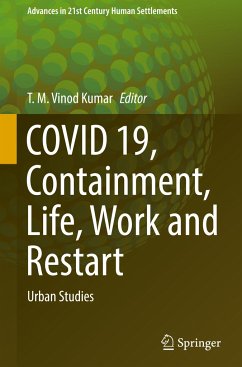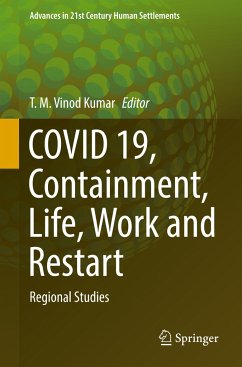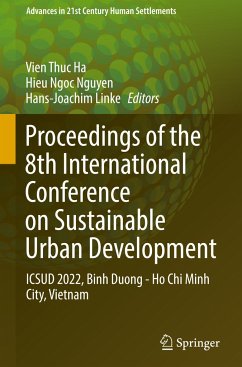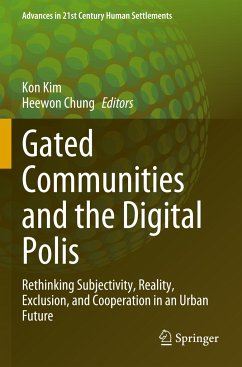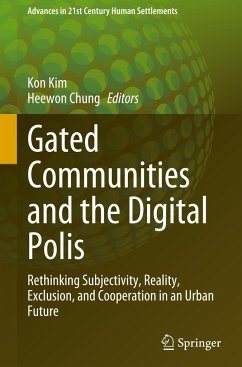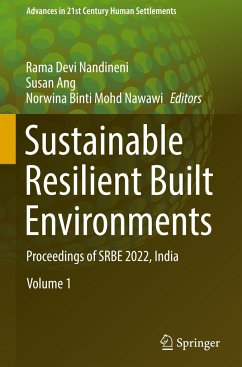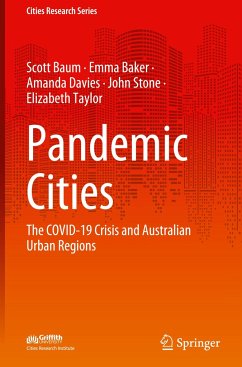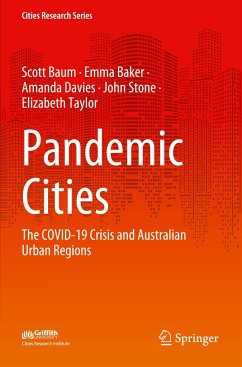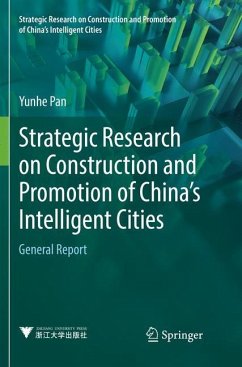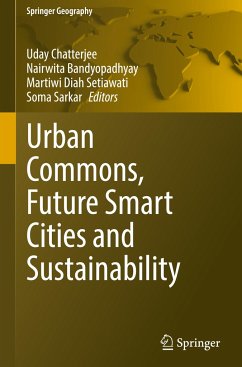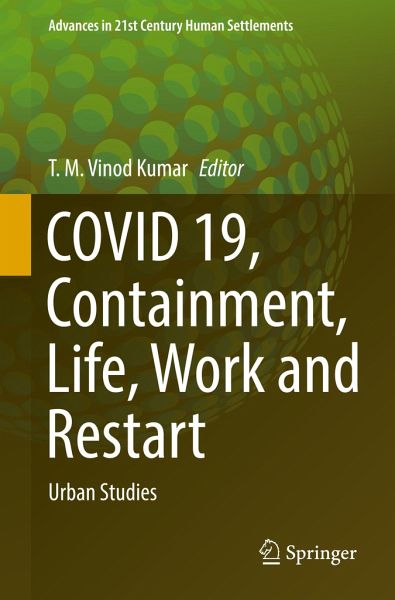
COVID 19, Containment, Life, Work and Restart
Urban Studies
Herausgegeben: Vinod Kumar, T. M.
Versandkostenfrei!
Versandfertig in 6-10 Tagen
83,99 €
inkl. MwSt.

PAYBACK Punkte
42 °P sammeln!
This book is about containment, life, work, and restart cities affected by COVID 19, using selected empirical case studies. This book presents the spread of coronavirus spatially and temporally, analyses containment strategies and includes recommended strategies. Further, it analyses how life and work get transformed during the lockdown, and gradual opening up, and presents the future of work and life in cities impacted by COVID-19. This book discusses the concept of smart life and works in cities post-COVID-19 such that they do not reduce the quality of work and life and cannot create adverse...
This book is about containment, life, work, and restart cities affected by COVID 19, using selected empirical case studies. This book presents the spread of coronavirus spatially and temporally, analyses containment strategies and includes recommended strategies. Further, it analyses how life and work get transformed during the lockdown, and gradual opening up, and presents the future of work and life in cities impacted by COVID-19. This book discusses the concept of smart life and works in cities post-COVID-19 such that they do not reduce the quality of work and life and cannot create adverse economic and living consequences called the restart of a city after COVID-19.
Selected Cities of special interest are studied. Special interest is because Kerala and Maharashtra got the worst affected in India by COVID 19 pandemic and the book focus on that.
Selected Cities of special interest are studied. Special interest is because Kerala and Maharashtra got the worst affected in India by COVID 19 pandemic and the book focus on that.



